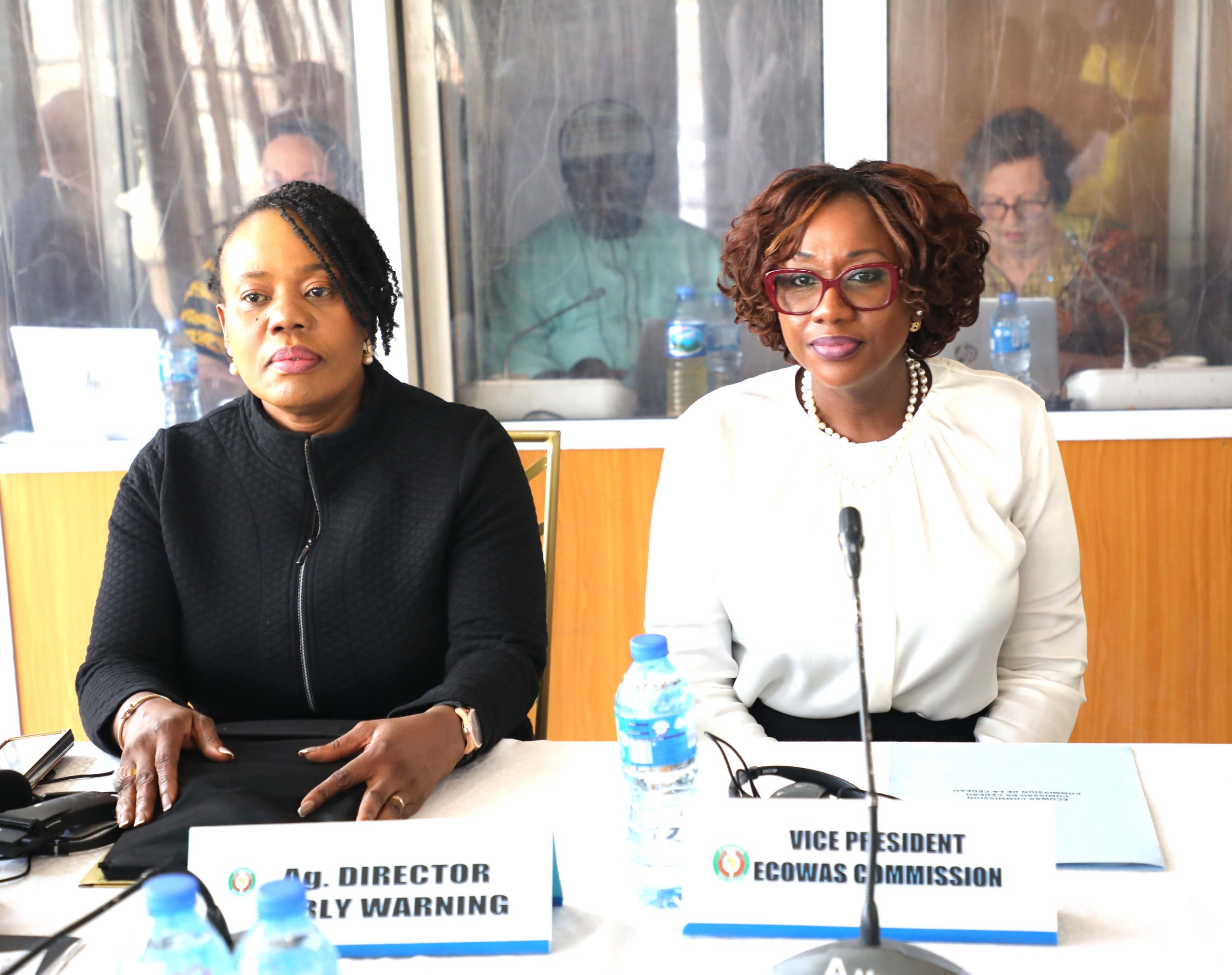Damtien Larbli Tchintchibidja Calls for the Operationalisation, Efficient Implementation and Sustainability of JARP-WG
28 Oct, 2024The Vice-President of the Economic Community of West African States (ECOWAS Commission), Ms Damtien Larbli Tchintchibidja, has reaffirmed the key role of the Joint Analysis and Response Planning Working Group (JARP-WG) tools in the peace and security architecture of the West African region.
Speaking on the third and final day of the Group’s inaugural workshop held in Abuja, Nigeria, on 25 October 2024, she expressed her expectations regarding the use of these tools.
In her view, the tools will enable the ECOWAS Commission and decision-makers at the highest level to improve the effectiveness of responses to human insecurity, strengthen regional collaboration, optimise decision-making and ensure the sustainability of response initiatives.
‘These are tools for solidarity and communication that will enable decisions to be taken at national and regional level, in order to tackle the problem of human insecurity in ECOWAS member states’, said Ms Tchintchibidja.
She urged the participants at the workshop to contribute effectively to the operationalisation and implementation of the Working Group, which will make use of the tools at various levels, to ensure their sustainability.
“Your support is needed in the implementation of the Working Group and the use of its tools. This Group should serve as a platform to foster cooperation between the Commission, ECOWAS Member States and international partners”, she told participants.
Ms Tchintchibidja also took advantage of the workshop to remind participants of the fundamental role of the National Coordination Centres of the Early Warning and Response Mechanism in guaranteeing security and stability in the West African region.
“Early warning must enable us to find rapid and appropriate responses to the problems of human insecurity in the Community area” she said.
“ECOWAS is the only institution likely to help us and support us, both in carrying out and in succeeding in our missions’’ they pointed out. After providing specific answers to the concerns of each director, Ms Tchintchibidja reiterated the determination of the ECOWAS Commission to continue to support and accompany these Centres in the fulfilment of their missions.
This inaugural JARP-WG workshop was attended by a wide range of participants, including directors of national coordination centres for the early warning and response mechanism, representatives of various directorates of the Commission and other ECOWAS institutions, and the West Africa Network for Peacebuilding (WANEP).
The JARP-WG was created in May 2022 and officially launched in July 2022 by the Vice-President of the ECOWAS Commission, Ms Damtien Larbli Tchintchibidja.
It aims to strengthen synergies and improve the region’s capacity to prevent, mitigate and respond to human security challenges, facilitate joint analysis, planning and implementation of responses, and foster collaboration between ECOWAS and its member states.
The workshop was an opportunity for most of the directors of these centres to explain to the Vice-President of the ECOWAS Commission the difficulties hindering the smooth running of their structures.
These difficulties, they noted, included cumbersome administrative and financial procedures at national and regional levels, as well as a lack of human resources for some and/or material resources for others.
The JARP Working Group will address issues related to the five human security thematic areas of the ECOWAS Early Warning System, namely security, crime, health, environment and governance.
The ECOWAS region is facing increasingly complex human security challenges, such as violent extremism, conflict, terrorism, transnational organised crime, climate change, epidemics, poverty, inequality and unconstitutional changes of government.
‘Meeting these human security challenges has never been more urgent, which is why the establishment of the JARP-WG is so crucial’, said the acting Director of Early Warning at the ECOWAS Commission, Dr Onyinye Onwuka, at the opening of the workshop.



















